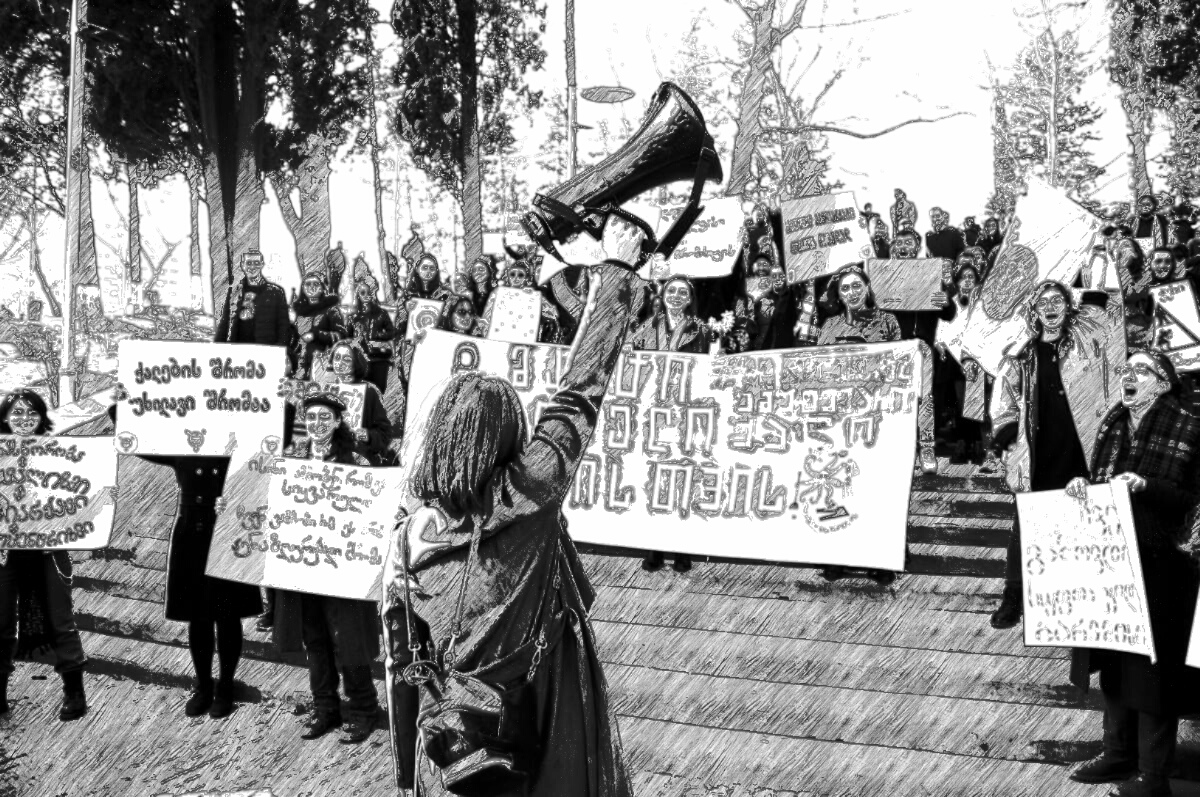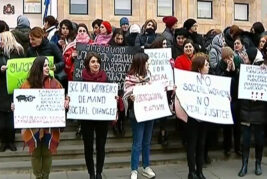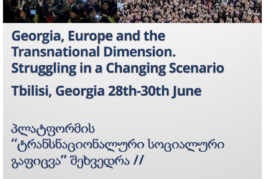
Read the presentation document towards the meeting — here
Friday 28th of June
5pm-5.30pm: Welcome from Solidarity Network and introduction of TSS
6pm-8pm: Roundtable
“Georgia, Europe and the Transnational Dimension: Struggling in a Changing Scenario”
In this opening roundtable we want to discuss the transnational dimension as the changing scenario in which we are struggling today beyond easy alternatives between nationalism and global neoliberalism and beyond geopolitical readings. The Association Agreement with the EU setting the rules for Georgian ‘development’, the neoliberal reforms precarizing labor and privatizing welfare benefits to meet transnational standards of efficiency, the attempts to cripple the right to strike and discipline repulsive workers to build a ‘business friendly’ environment, the integration in transnational circuits of capital and the state’s entanglement with foreign investors, massive migration of women to Western European countries. Georgia is by now through and through integrated in a transnational scenario and invested by processes that have trends in common with what is happening in other European and non European countries. These transformations influence the capacity to strike and organize and we need to find collective ways to cope with them and look for connections between struggles addressing different, but interconnected aspects of the changing scenario we live in.
Saturday 29th of June
*Morning session*
10.30am Welcome with coffee
11am-1pm: Workshop #1
“Rethinking the strike: experiments, conflicts and organizing in Georgia, Europe and beyond”
The transformations of labor and society, and of their relationship, affect our capacity to fight and require to think anew forms of organization and unions’ practices. Starting from the different struggles that are erupting in Georgia, in this session we want to stress the possible connections with the multiple struggles and strikes that have happened over the last few years in Europe. We are interested in discussing what it means to organize a political and social strike and what it means to politicize the strike today, so to make it a way to struggle against the more general conditions that determine the position of workers in society. During this session we want to discuss about how to enhance connections between struggles to face the common challenges that we share in spite of national and sectoral differences.
1pm-2.30pm: Lunch break
*Afternoon session*
2.30pm-4.30pm: Workshop #2
“Global Women’s Strike”
The last three years have seen the rise of a global movement under the banner of the strike hitting both production and social reproduction. In dozens of countries around the world women are protesting against male violence, catalyzing a general opposition against neoliberalism, patriarchy and racism. Together with millions women in the world, Georgian women have taken to the streets on the 8th of march this year refusing sexual violence and oppression, but also exploitation and precarization of women – resulting, for instance, in a total deregulation of surrogacy, the dismantlement of welfare and the tightening of sexual division of labour. In this way feminist strike is connecting Georgia with a transnational movement bringing together all those who are rising up against the violence of patriarchal and racist neoliberalism. How to foster and enlarge the transnational movement of the feminist strike? What are its perspectives? How to connect and boost different experiences of struggle along transnational chains of care? How to strike against production and social reproduction? What does the women’s strike say about possible ways to connect the struggle against exploitation with wider social issues?
5pm-7pm: Final Plenary
“Building a transnational strategy against exploitation and impoverishment”
Starting from the reflections of the previous sessions in this plenary we would like to continue the discussion on how to foster and increase our transnational communication and how to turn the transnational from a crucial dimension of our exploitation to a strategic element of struggle and opposition.
Sunday 30th of June
11am-3pm: TSS Platform Coordination Meeting





